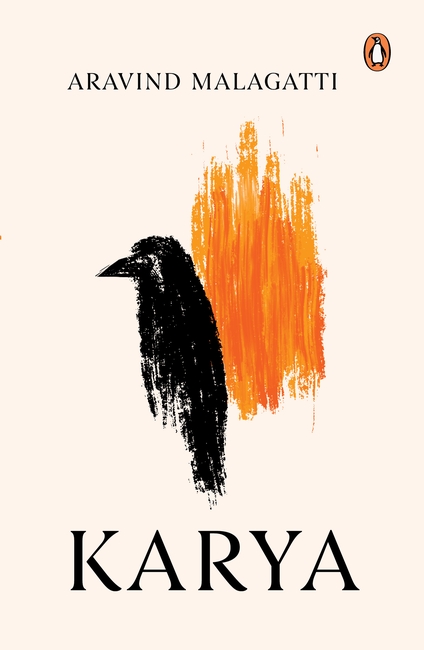On the third day after the death of Bangaravva, a solemn procession making its way towards the graveyard encounters a strange obstacle. What follows is chaos and confusion. Who will bear the blame for things going awry, and how might they be set right? The division between castes and communities comes to the fore as the panchayat struggles to pronounce justice.
Studded with symbols drawn from nature and myth, Aravind Malagatti’s Karya, translated into English by Susheela Punitha, unfurls the politics and power embedded within a dalit community.
The following is an excerpt from the novella.

Pointless Fuss over a Corpse
For the Veerashaiva ascetics known as Jangamas, some sects of Dalits are the main clientele. In a business without capital, the panchanga is their only investment. And the future they forecast from this almanac is their merchandise; never mind that it is repeated, parrot-fashion. People listen to his predictions standing outside the door as if it were the truth from the Vedas; they believe they have no salvation without the Jangamas. The Jangamas also have the practice of dividing up the Dalit settlements among themselves once every two years so that they do not trespass on each other’s territory. How did this bond grow between the untouchables and the ascetics? No one knows!
The colony of the Machagaras came under Butalayya’s jurisdiction. So, they consulted him, without fail, for every ritual connected with weddings and deaths. The family that sent for him had to pay in cash for the items, like grains and fruit, needed for the ritual puje. The articles were considered worthless if the family bought them or provided them from their home. All the items used for worship went into the Jangama’s sling-bag. They had to give him some gift-money too.
It was the same during a funeral. After the burial, there was the ritual washing of the Jangama’s feet over the head of the dead person; a stone was placed on the head of the grave on which his feet were washed. But before the washing was a ceremony, similar to the proverb, ‘The one who beats the drum at a funeral, weeps according to the payment.’ So, the more the money, the more the wailing. The Jangama was initially stubborn, venting his ire, faulting the dead until he was suitably mollified with money. Then, he washed his own feet. Only then would the dead attain mukthi; those assembled heaved a sigh of relief and those who had eaten dared to burp. Once this was done, the Butalayya made sure he had a bath somewhere before he reached home. Not only after a funeral but after a wedding as well! Such was the connection between the Ayya and the outcastes. And that was why Chandappa was sent to the ‘revolutionary’ Butalayya’s house now.




